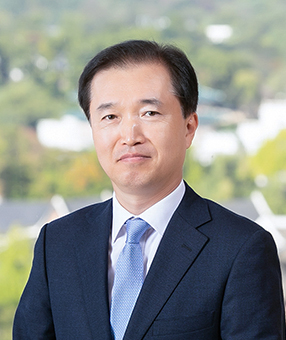Effective November 1, 2018, The Hong Kong International Arbitration Centre (“HKIAC”) recently amended its International Arbitration Rules.
The amended rules have incorporated various new provisions to ensure efficient and speedy arbitration proceedings, including provisions for a disclosure of third-party funding, single arbitration for multiple contracts, early determination procedure, and notification of expected award issue date.
The HKIAC amendments are in line with demands expressed in on-going debates within the arbitration industry worldwide for arbitration institutions to improve their rules to ensure more efficient arbitration proceedings. For example, the London Court of Arbitration, the Korean Commercial Arbitration Board, and the International Chamber of Commerce have all made significant amendments to their arbitration rules in the last few years.
Key Amendments:
1. Disclosure of third-party funding
In recent years, one of the popular trends in arbitration is third-party funding of a party’s expenses in the arbitration proceeding. Jurisdictions differ as to whether this practice is permitted, and if yes, how such funding should be allowed has been subject to much debate.
Hong Kong, through the amendment of the Hong Kong Arbitration Ordinance in 2017, has allowed third parties to fund arbitration expenses, if such a funding party has no legal interest with the disputing parties.
In its amendment, HKIAC’s amended rules conform to this by allowing third-party funding. Specifically, the amended rules provide that a party receiving third-party funding must immediately disclose its funding agreement with the third party, and the identity of the third party. Also, as an exception to the confidentiality obligation for arbitral proceedings, a party may disclose information regarding the arbitration to the third party providing the funding, or to a third party from whom the party is seeking third-party funding.
Further, the arbitral tribunal may take into consideration the third-party funding when allocating the arbitration costs.
2. Single arbitration for multiple contracts
When multiple disputes arise from multiple contracts – which relate to a single transaction or related transactions, and the disputes involve the same legal or factual relations – there may be a benefit in having a consistent and uniform dispute resolution process across the several disputes.
HKIAC’s amended rules allow for a wide application of such a provision, and allows the parties to resolve these types of disputes under a single arbitral proceeding. Hence, even in cases where the parties to the contracts are not the same, multiple parties may be able to consolidate the disputes for resolution through a single arbitral proceeding.
3. Early determination procedure
The HKIAC’s amended rules have incorporated a new “Early Determination Procedure” for an expedited proceeding.
At the request of a party and after consulting with all other parties, the arbitral tribunal has the power to decide, by way of an “Early Determination Procedure,” on a certain point of law or facts if: (i) such points of law or fact are manifestly without merit; (ii) such points of law or fact are manifestly outside the arbitral tribunal’s jurisdiction; or (iii) if no award could be rendered in favor of the party against whom the Early Determination is sought, assuming that all the points of law or fact(s) in question are decided against the applying party (and in favor of the non-applying party).
In terms of timing, the tribunal is required to decide whether to allow for the Early Determination Procedure within 30 days from one of the parties filing of the request for such a procedure. If the tribunal decides to proceed with this procedure, the tribunal must decide on the matter within 60 days from the date of its decision to proceed.
Through this Early Determination Procedure, it is expected that the parties will be able to clear away issues at an early stage of the arbitration, and ultimately, save time and costs.
4. Notification of anticipated date of rendering of award
Once the proceedings are closed, the parties are naturally anxious to know when the tribunal will render the award, and to receive the award as soon as possible.
To address these user needs, the HKIAC’s amended rules have a new provision requiring the tribunal to inform the HKIAC and the parties of the anticipated date by which an award will be communicated to the parties.
While some extensions may be allowed by the HKIAC or upon parties’ agreement, the key principle is that the award should be rendered no later than three months from the date on which the tribunal declares the entire proceedings or the relevant phase of the proceedings closed.
Significance:
HKIAC is considered an arbitration institution of choice by parties in Asia, including Korea, and especially for cases where a party to the arbitration agreement is from China. Thus, parties considering arbitration in Hong Kong are encouraged to become familiar with the newly amended HKIAC arbitration rules so they can be deployed to their benefit, as appropriate.
Related Topics







